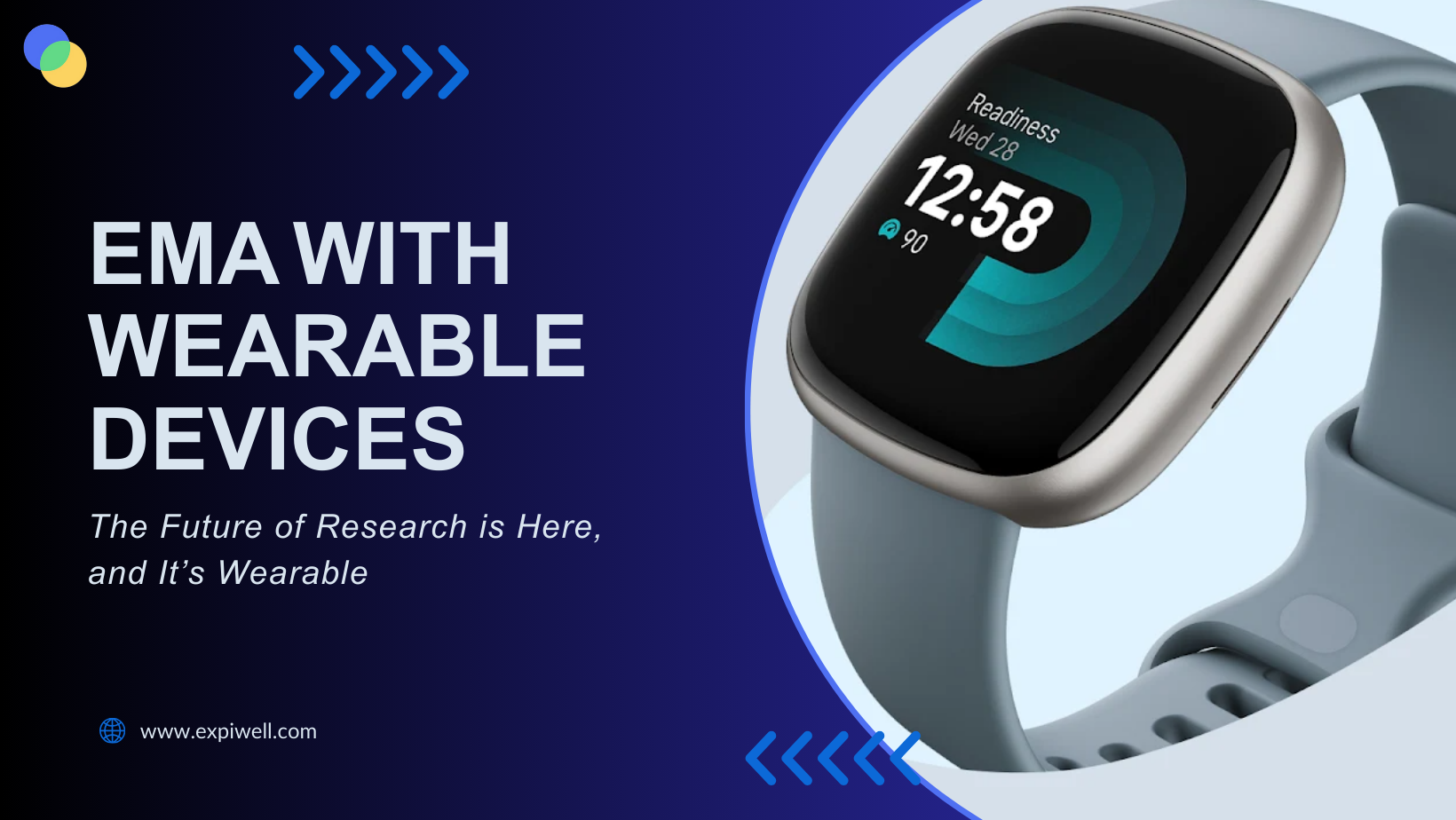
The proliferation of wearable health technologies, such as the Apple Watch, Fitbit and other smart devices, has significantly influenced how individuals monitor their physical activity, sleep, and overall wellness. Initially developed for consumer fitness tracking, these devices play a pivotal role in academic research.
Their ability to passively and continuously collect physiological and behavioral data offers researchers new opportunities for insight—particularly when integrated with platforms such as ExpiWell.
This blog explores how wearable devices in academic research can enhance data quality, reduce participant burden, and open new avenues for real-time, personalized interventions.
The adoption of wearable health monitoring devices has expanded rapidly over the past decade, transitioning from primarily consumer-oriented fitness tools to sophisticated instruments used in academic research.
According to recent projections, the global number of wearable device shipments is expected to reach 645.7 million units by 2028, reflecting increased consumer demand and a growing interest among researchers in using these tools for scientific inquiry.
Wearable technologies are valuable assets across various research domains, providing continuous, real-time physiological and behavioral data. This capability allows for more ecologically valid and temporally precise measurements than traditional retrospective or laboratory-based methods.
As their use in research settings continues to grow, the specific benefits of wearable technologies are becoming increasingly evident.
%20(2).png)
The integration of wearable health monitoring devices into academic research offers a range of methodological advantages that enhance both the quality and applicability of data collection. These benefits contribute to more robust study designs and deeper insights across disciplines:
These advantages underscore the growing value of wearable devices in Fitbit or Apple Watch research studies, positioning them as essential tools for advancing both observational and intervention-based studies.
As wearable health monitoring devices become more advanced and accessible, their integration into academic research has expanded across multiple disciplines.
These devices offer researchers unprecedented access to continuous, real-world data, enabling more accurate and ecologically valid insights into human behavior and health. Below are some of the primary fields where wearable data is making a significant impact:

Wearable devices in Apple Watch or Fitbit research studies are increasingly utilized across academic disciplines to address various research objectives. Their ability to passively collect continuous physiological and behavioral data makes them well-suited for studies requiring real-time monitoring and high ecological validity.
According to Anytime Fitness, wearable health monitoring devices have progressed from basic pedometers to sophisticated health-tracking systems, offering comprehensive physiological and behavioral data. This evolution has significantly broadened their applicability across various research domains and methodologies.
Notable applications include:
These applications highlight the transformative potential of wearable technologies in enhancing the scope, precision, and responsiveness of academic research.
READ MORE: Incorporating Fitbit Into Ecological Momentary Assessment in Research
%20(1).png)
As wearable health-monitoring technologies become increasingly central to academic research, platforms that enable seamless integration of these data sources are essential. ExpiWell supports comprehensive integration with devices such as Apple Watch and Fitbit, empowering researchers to combine passive physiological monitoring with ecological momentary assessment (EMA) in real-world contexts.This integration significantly enhances the quality, relevance, and responsiveness of research methodologies.
Through ExpiWell, researchers gain access to tools that enable adaptive, real-time data collection and analysis.
Also Read: How Passive Mobile Data Collection Unveils Patterns in Human Behavior
By combining passive sensing with momentary self-reporting, wearable devices with ExpiWell enable researchers to conduct sophisticated, ecologically valid studies that capture the complexity of human behavior in everyday life.
READ MORE: How Apple Watch Integration Benefits Your Ecological Momentary Assessment Research
While many platforms support basic data collection, ExpiWell offers an end-to-end research environment specifically designed for wearable health monitoring devices and real-time studies. Rather than simply storing data, ExpiWell empowers researchers to act on it—enabling truly adaptive, participant-centered methodologies.
What sets ExpiWell apart is its flexibility and researcher-first design. Studies can be configured to trigger momentary assessments based on custom physiological thresholds, time-based schedules, or contextual cues. The platform also supports cross-device syncing (e.g., Apple Watch, Fitbit) and visualizes EMA and wearable data through a unified, customizable dashboard—making complex, multimodal datasets easier to interpret.
Moreover, ExpiWell was built with academic accessibility in mind. Unlike commercial tools prioritizing enterprise users, ExpiWell remains affordable, scalable, and backed by a support team that understands the needs of principal investigators, graduate students, and interdisciplinary research teams.
We invite academic researchers to explore how ExpiWell can support innovative, wearable health monitoring devices research study designs and help unlock new insights. Contact us today to learn more!